Let's see first the operation of the front suspension of XRV.

A schematic of the fork of XRV:
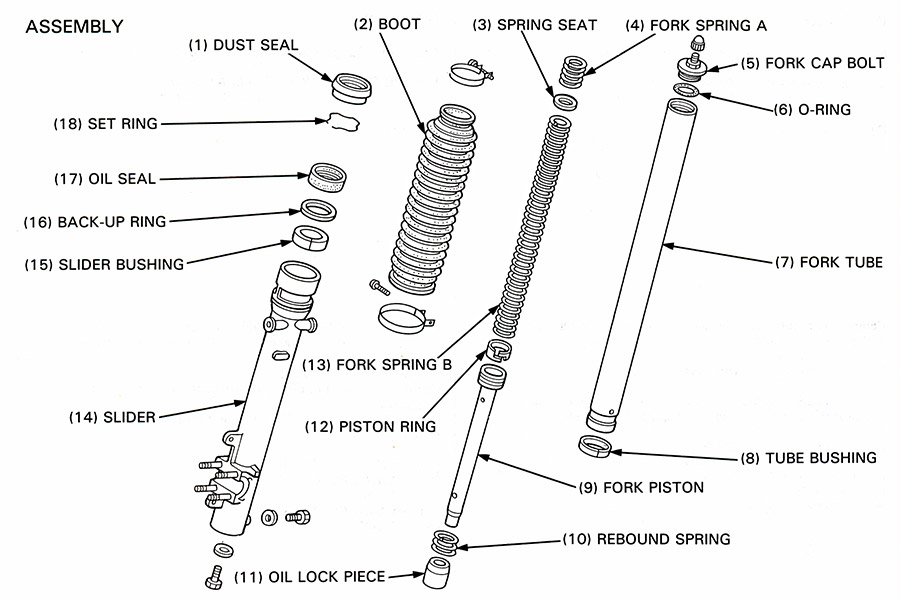
The quickest and cheapest upgrade in this kind of forks is the change of the springs.
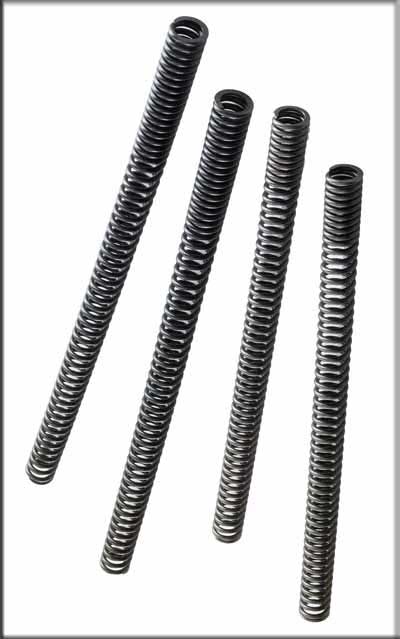
The front fork springs can be replaced with aftermarket progressive ones as in the picture above. We have use WP and PROMOTO springs in our XRVs but there are also OHLINS, WILBERS, etc. The fork oil must be also changed with SAE 10 or SAE 15. After a lot of tests we have made, our choise is SAE 15, level 14 cm from the upper edge of the fork as shown in the picture below.
WP suggests: 14cm for Hard-16cm for Standard-18cm for Soft.

The XRV650’s behavior becomes much more stable and predictable especially while braking. As fork oil viscosity and quantity play an important part to the forks functionality It would be good to know more details. The following text is taken from a Wilbers manual(Wilbers Products GMBH, De).
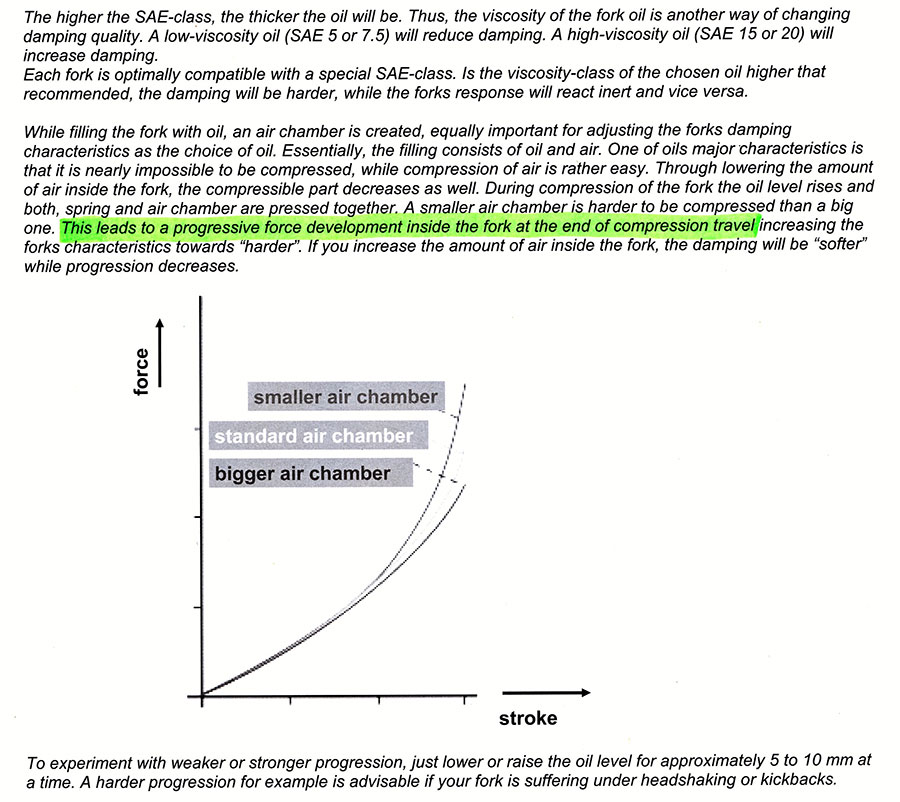
Some useful tips for the oil change procedure:
Turn the front fork upside-down over a washbowl and press/decompress the internal part of the fork several times, so, the old fork oil can drain out.
Let the fork to the upside down position for a while to have the old oil fully drained.
If you want to thoroughly clean the fork from the old oil, pour a few gasoline inside the fork, press/decompress it, cap it and shake it well. Afterwards empty the dissolved oil by turning it upside down and let the gasoline to be fully vaporized from the inside the fork (half an hour is more than enough)
In order to fully clean the inside of the fork from the remaining of the old dissolved oil, pour new oil inside the fork and repeat the aforementioned procedure. Be sure that you have fully empty the new fork oil that you have used for cleaning the inside of the fork.
Turn the fork to the up/position and push the inside part of the fork to get fully inside. Fill the fork with the new fork oil up to the level given from the instructions, using a measuring stick. Press/decompress the internal part of the fork several times (minimum ten times), so any air trapped inside the fork is removed.
Check the fork oil level again and refill if necessary.
Attention: If you fit aftermarket progressive springs you don’t fill the fork with compressed air.
If you are planning on upgrading the front suspension, you’ll need to match the rear shock as well.
Let's see now the rear suspension and the PRO-LINK system.

Here is a schematic of the rear shock of XRV650.
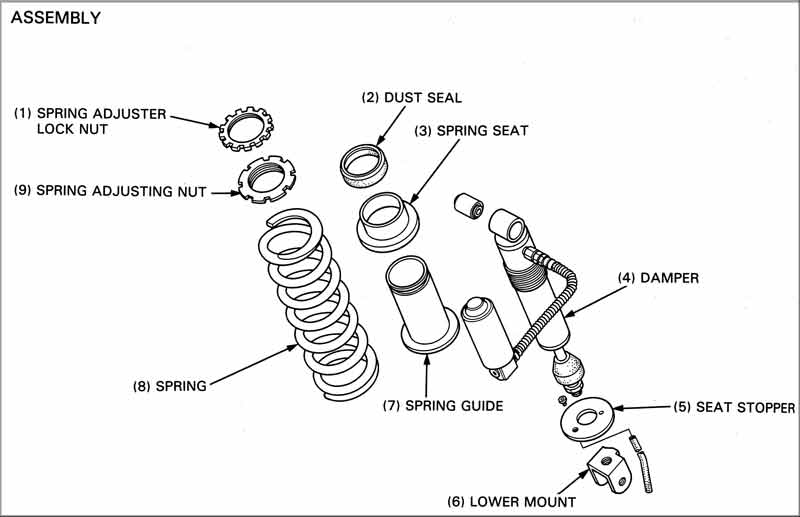
Also here, the cheapest solution is the change of the spring. A lot of aftermarket companies offer springs for XRV. Your pocket will guide you.
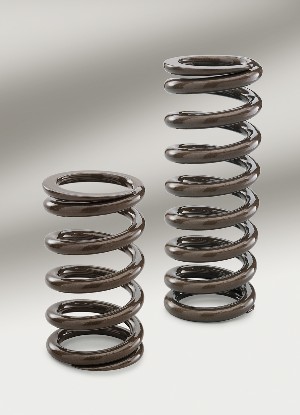
The original Honda shock absorder is working fine and can be rebuilt. Also, the damping is adjustable. So, a good service and an aftermarket spring is enough.
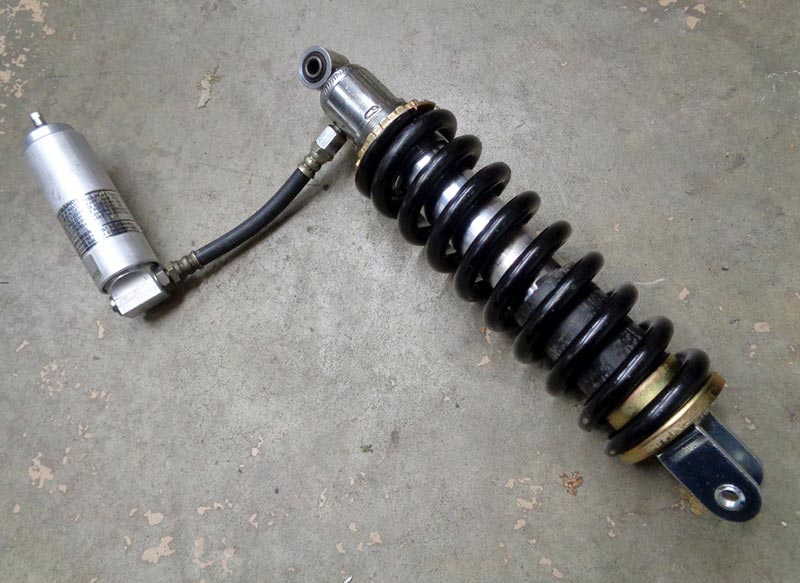
By clicking here you can download in PDF format a WP guide which will help you to understand the function and the effects of the suspensions. 
The original Honda suspensions with new springs will perform OK, but many riders quickly find their limitations once you start going into rough terrain. Then, the change of the whole rear shock absorber it is necessary.
There are companies offering many kinds of shock absorbers in different prices. We use in one of our XRVs a 4014 Fusion WP shock absorber with excellent characteristics and performance.
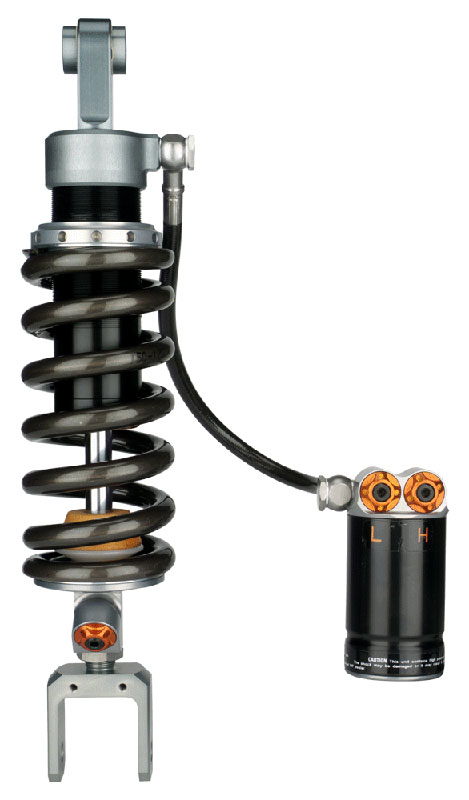
Anyway, it is not necessary to resort to such expensive options. A more simple and inexpensive shock absorber is good enough. Αnd should always be borne in mind that placing a very good rear shock make the front fork seem poor. In this case we should drastically upgrade the front of XRV fitting Race Tech Emulators, Ricor Intiminators or placing a USD fork from KTM for example.
D.M.










